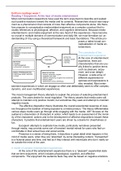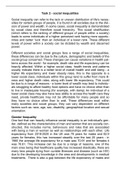Samenvatting
EntCom literature summary
- Instelling
- Universiteit Van Amsterdam (UvA)
In this document you can find a summary of the following articles: Week 1: • Vorderer, P., Klimmt, C., & Ritterfeld, U. (2004). Enjoyment: At the heart of media entertainment. Communication Theory, 14, 388–408. • Oliver, M. B., & Bartsch, A. (2010). Appreciation as audience response: E...
[Meer zien]













